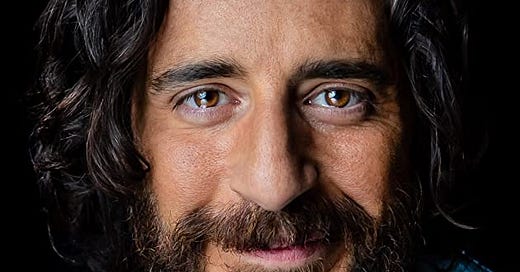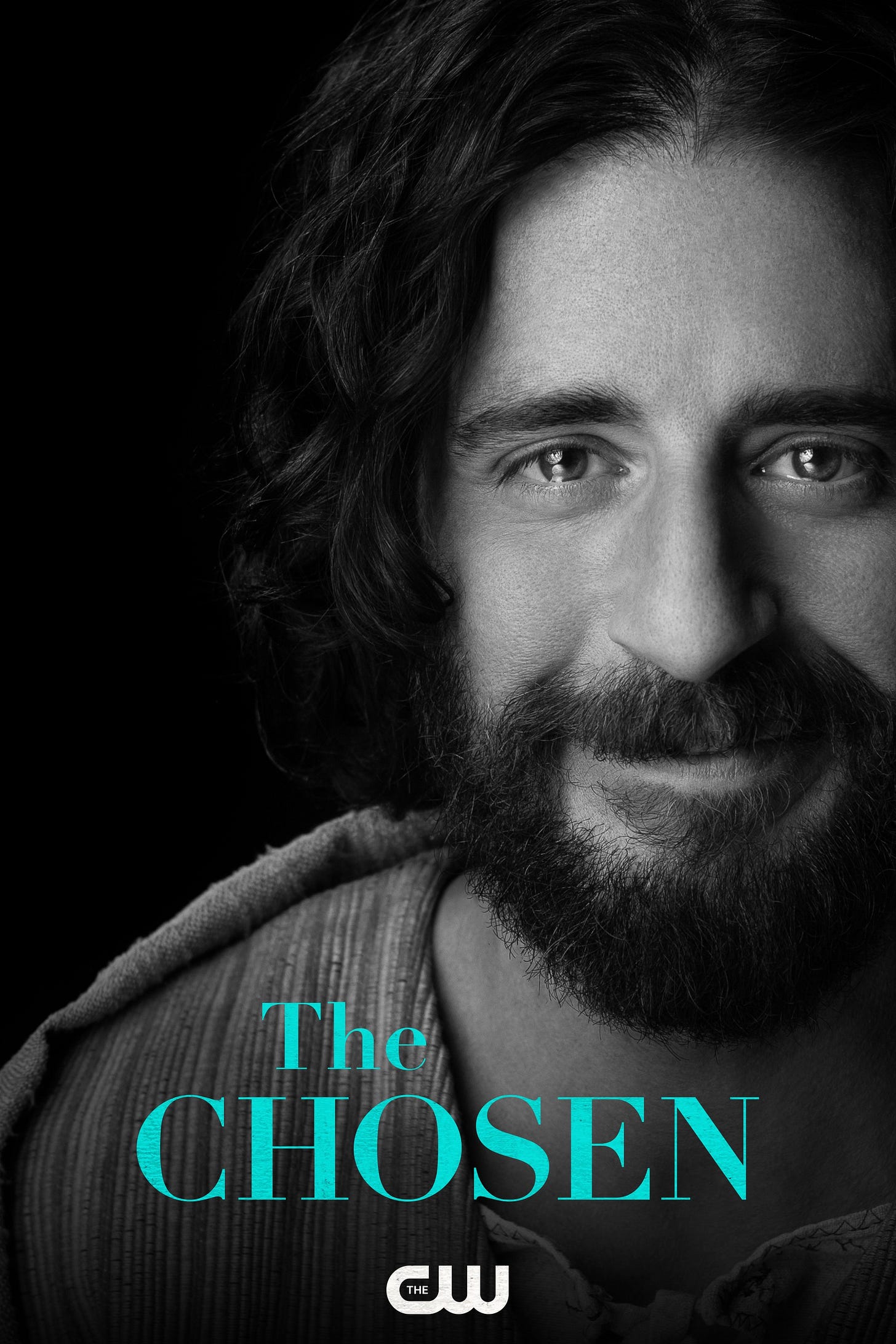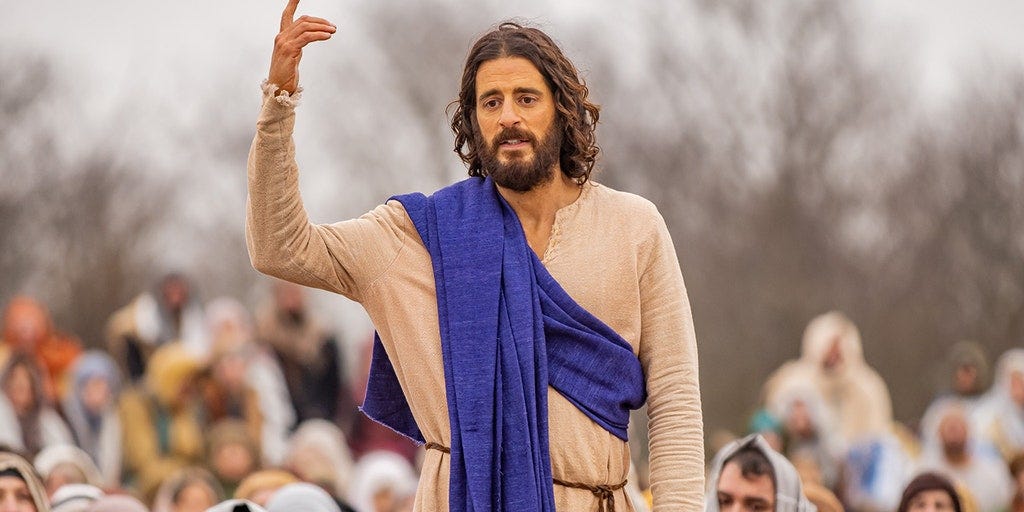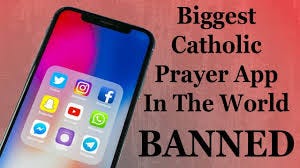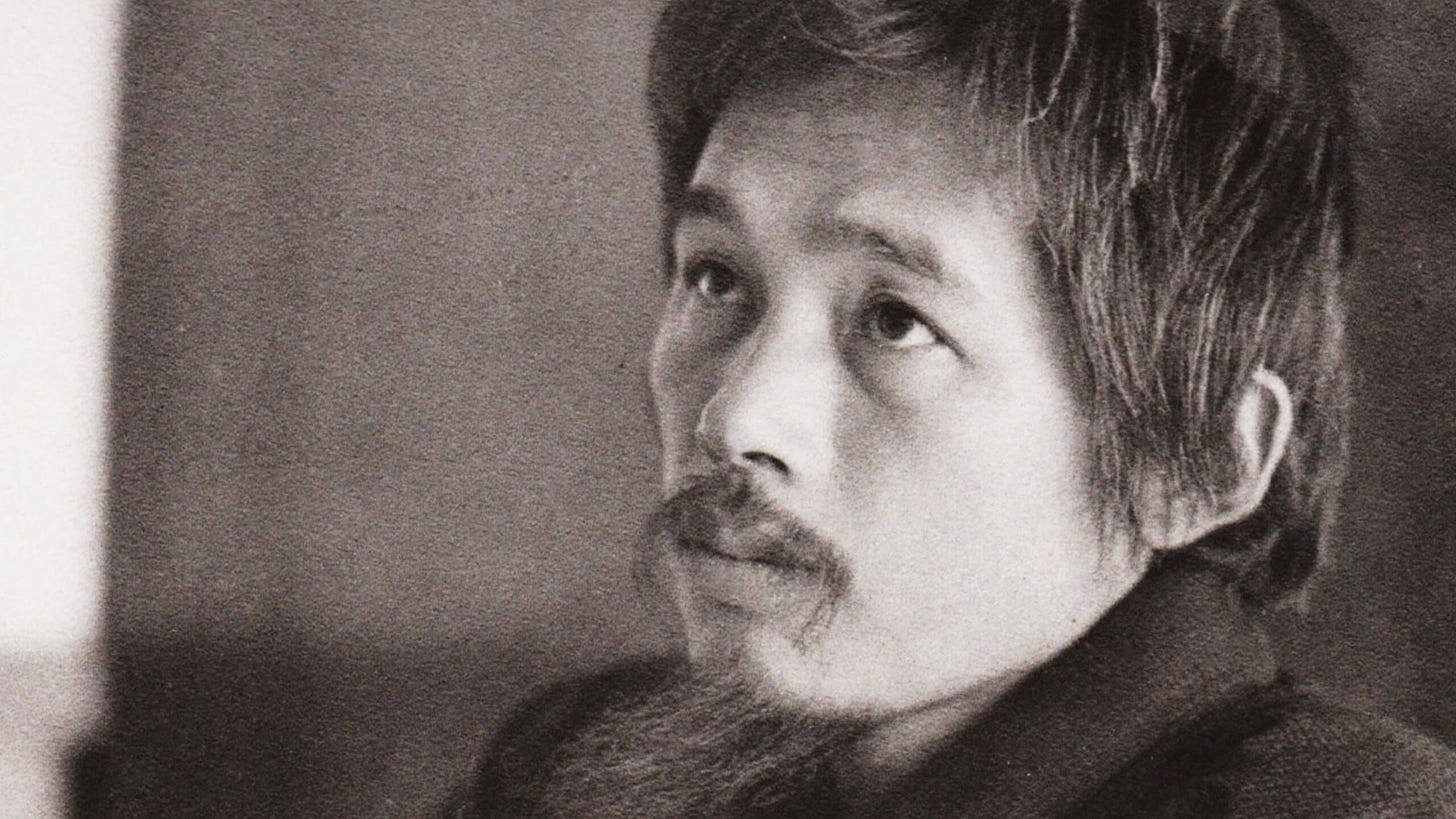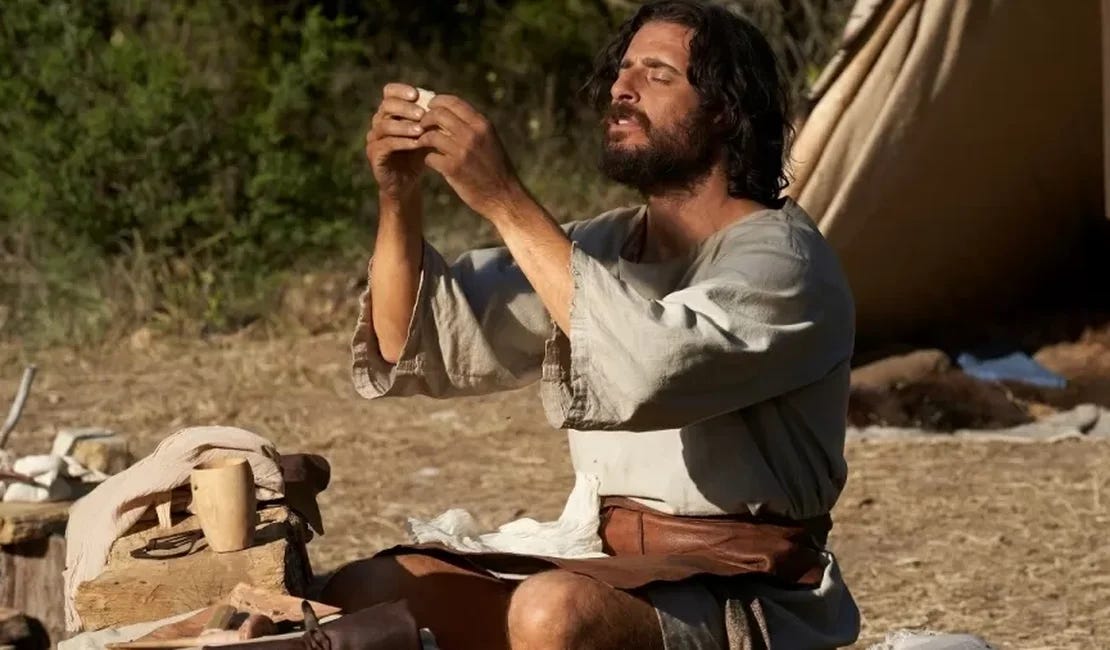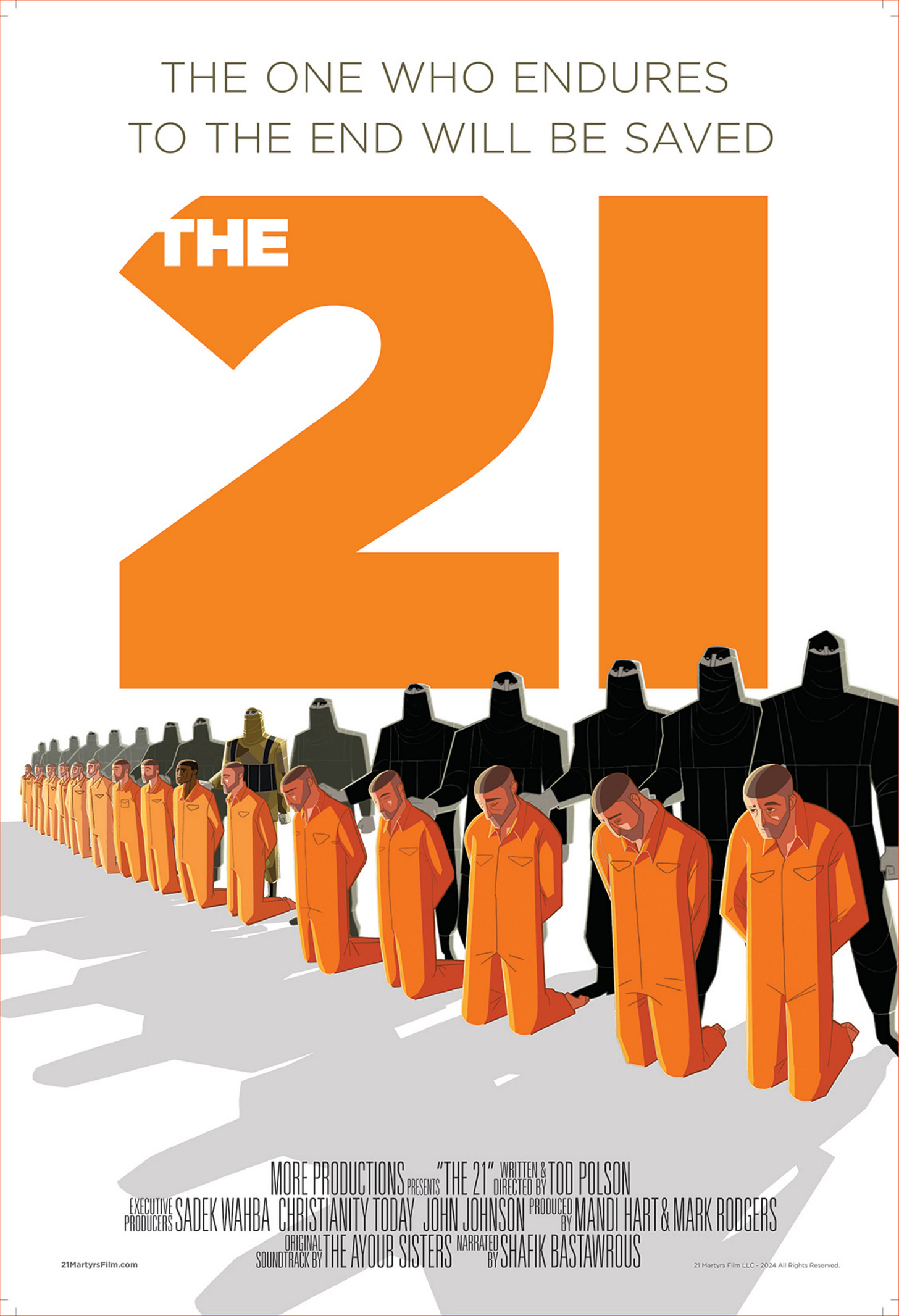The Power of Prayer, Faith, and Christian Resilience
A Deep Dive into Jonathan Roumie’s Conversation with Tucker Carlson
Jonathan Roumie, widely known for his portrayal of Jesus in The Chosen, recently sat down with Tucker Carlson for an in-depth discussion about faith, the power of prayer, and the challenges facing Christianity today. The conversation covered various topics, from personal spiritual experiences to broader cultural and political issues surrounding religious expression. This article provides a comprehensive breakdown of the key themes explored in the interview, offering an analytical perspective on the insights shared.
Jonathan shares a powerful message about the life-changing force of prayer and the resilience that comes from unwavering faith in God. Roumie’s journey to spiritual maturity offers a profound reminder of the importance of cultivating a personal relationship with God through consistent prayer and fasting.
The Spiritual Journey of Jonathan Roumie: Playing Jesus and Finding Purpose
Roumie’s Artistic and Spiritual Calling
Jonathan Roumie’s portrayal of Jesus in The Chosen has had a profound impact on his life, both professionally and spiritually. He describes the experience as one of the most significant artistic endeavors he has ever undertaken, stating:
“For me, it’s like playing Jesus in The Chosen. It feels like I’m a media apostle. I feel like that’s what I was sent here to do, to be a part of this growing movement in film and television that is counter to the current culture.” This is more than just an acting role for Roumie; it is a mission—a calling to boldly proclaim the truth of Christ, especially in times of uncertainty and persecution.
One of the most profound and honest moments in Jonathan Roumie’s interview comes when he openly expresses his feelings of unworthiness in the context of his acting career, especially in portraying Jesus in The Chosen. Roumie shares how, initially, he felt that he was not deserving of such a role—one so sacred and central to the Christian faith.
He reflects on the moment when he first learned that he had been chosen for the role, acknowledging the overwhelming sense of responsibility that came with it. In his own words, he admits:
"I felt completely unworthy. There was no way I could be worthy to portray Jesus, the Son of God. I was just a regular guy—nothing special."
Roumie’s humility here is striking. In a world where fame and recognition often lead people to puff up their sense of importance, Roumie’s response to such a monumental opportunity is filled with self-reflection and deep respect for the role. This humility speaks volumes about his character, showing that he doesn’t take the responsibility lightly. It’s also a reminder that God often calls people who feel inadequate or unworthy—people who, by worldly standards, might not seem like the obvious choice—but in God’s economy, they are perfectly positioned for His purposes.
Despite his initial feelings of unworthiness, Roumie goes on to explain that he has learned to surrender to God’s plan for him. He shares how he leaned into prayer and spiritual guidance to prepare for the role, seeking God’s wisdom and grace every step of the way. What stands out is the sense of awe and gratitude that Roumie conveys. Rather than focusing on his perceived inadequacies, he sees the role as a divine gift—an opportunity to serve God in a powerful way.
He notes that this feeling of unworthiness is not something he is ashamed of; rather, it’s a source of humility and reliance on God’s strength. Roumie emphasizes that it’s important to acknowledge our limitations, as that’s when God’s power shines the brightest. He shares the comforting reminder that “God doesn’t call the qualified, He qualifies the called.”
This sentiment reflects a key principle in the Christian faith: that true worth doesn’t come from our abilities, achievements, or worldly status, but from our relationship with God. Roumie’s unworthiness is, in many ways, a reflection of his deep understanding of this truth. It’s a lesson to all believers: God chooses us not because of our perfection, but because of His grace and love.
The Power of Prayer: Transforming Lives and Strengthening Faith
The Surrender Novena and Its Profound Impact
Jonathan Roumie’s experience with prayer is nothing short of profound. From his role in The Chosen to his personal life, he attests to the power of prayer in overcoming personal challenges, deepening faith, and healing brokenness. One particularly poignant story Roumie shares is about a couple grappling with the heartbreaking loss of two pregnancies. Desperate for strength, they turned to the Surrender Novena prayer, a prayer that has brought countless people closer to God.
Roumie reflects on the profound impact this prayer had on their lives:
“They said that if they hadn't gotten into this consistent routine of communicating with God through prayer, if their faith hadn't been strengthened, that second miscarriage would have destroyed their marriage. But it didn't. And they kept going. A year later, they had a healthy baby boy.”
This story exemplifies how prayer isn't merely an act of speaking to God; it’s an intimate, transformative dialogue that can guide us through our darkest moments and lead us to hope and healing. Roumie believes that prayer is a critical tool for resilience, particularly during times of personal suffering. It aligns the heart with God’s will and allows us to experience His grace, which can manifest in ways that go beyond human understanding.
Why Is Prayer a Threat? Religious Censorship in China and the West
The Banning of Religious Apps and Content
Roumie and Carlson discuss the suppression of religious content in both authoritarian and democratic societies. Notably, the Hallow prayer app, which Roumie collaborates with, has been banned in China and effectively restricted in Europe due to Meta’s policies against religious advertising.
“Why is that a threat? That’s like the kindest, least threatening thing…”
This raises a fundamental question about the growing restrictions on religious expression in digital spaces.
The Global Suppression of Faith-Based Content
Religious censorship is often framed as a measure to maintain secularism or prevent divisiveness, yet this case suggests that even peaceful religious content can face restrictions. The conversation sheds light on the tension between faith-based initiatives and major tech platforms, raising concerns about digital gatekeeping.
Resilience in the Face of Christian Persecution
Roumie also highlights the global persecution Christians face, something that has intensified in many parts of the world. He speaks to the powerful story of Takashi Nagai, a Christian doctor who survived the bombing of Nagasaki during World War II. Nagai’s story is one of incredible resilience and faith in the face of unimaginable suffering. After surviving the atomic bomb, he was left to pick up the pieces of his shattered life, yet his unwavering faith in Christ never faltered.
“Let us be thankful that Nagasaki was chosen for the whole burnt sacrifice. Let us be thankful that through this sacrifice, peace was granted to the world and religious freedom to Japan.”
Rather than succumbing to despair, Nagai viewed the bombing as part of a divine plan, drawing parallels between Nagasaki’s suffering and the sacrifice of Christ.
Roumie’s retelling of Nagai’s words—“The Lord has given, the Lord has taken away, blessed be the name of the Lord”—demonstrates the profound depth of Christian resilience. Nagai’s ability to find meaning in such horror is a testament to the strength that comes from a deep relationship with God. His perspective challenges us to rethink our own responses to suffering and adversity, urging us to see challenges not as burdens but as opportunities to rely more fully on God.
Nagai’s story exemplifies how faith can provide meaning in times of extreme hardship. His interpretation of the bombing as a form of redemptive suffering contrasts sharply with secular narratives of victimhood, demonstrating the resilience that deep spiritual conviction can inspire.
The Role of Fasting and Lent in Strengthening Faith
Fasting is another powerful practice that Roumie credits with fortifying his spiritual life. He speaks of the profound discipline and spiritual clarity that fasting brings, particularly during Lent, a season of preparation and sacrifice for Christians worldwide. By intentionally denying oneself, believers are reminded of their dependence on God for everything.
Roumie emphasizes that fasting is not just about abstaining from food; it's about creating space for God to work in one’s life. Fasting allows us to break free from distractions and focus on what truly matters—our relationship with God. This idea is supported by biblical teachings, including Matthew 6:16-18, where Jesus teaches us how to fast in a way that honors God rather than seeking the approval of others.
Just as Jesus fasted in the wilderness, Roumie underscores the importance of fasting as a way to strengthen one’s spiritual resolve and to engage with God more deeply during difficult times. It is a powerful means of aligning the body and soul with God’s will and gaining the strength to face challenges with a renewed spirit.
Silver Squeeze 2.0: Will It Destroy the System? Are You Ready to Join the Revolution?
"If we do it again, we could do it. It's not going to be planned; it's not going to be us doing it. It’s going to be everything coming together organically. Everyone's going to say, ‘We need to buy silver.’”
The 21: A Call to Martyrdom and Strength in the Face of Persecution
One of the most powerful points Roumie makes in the interview is the reflection on the "21"—the 21 Coptic Christian martyrs who were executed in Libya in 2015. Their unwavering faith in the face of death serves as a stark and poignant reminder of the price that some Christians pay for their faith. Roumie draws a parallel between their courage and the calling for Christians today to stand firm in their belief, regardless of the challenges they may face.
Roumie reflects deeply on their sacrifice, stating, "They were beheaded for their faith. And they did not renounce it. They looked at their executioners, and they said, ‘Ya Rabbi Yasou’—‘Lord Jesus.’” This example, as Roumie explains, illustrates the ultimate act of surrender and devotion to God. It’s not just about a personal commitment to faith but also about understanding the depth of what it means to be a follower of Christ in a world that often rejects Him. These martyrs’ courage challenges believers to evaluate their own devotion and consider how they are living out their faith in the face of less extreme but still real forms of persecution.
In his analysis of this martyrdom, Roumie calls on modern Christians to emulate such unwavering commitment. He encourages believers to reflect on their own spiritual journeys, asking: _“How can we live with such courage and devotion, especially when faced with the uncertainties and trials of the modern world?”_ The story of the 21 martyrs serves not only as a tragic reminder of the physical cost of discipleship but also as an inspirational call to Christians worldwide to deepen their faith, stand firm in the face of adversity, and never compromise their belief in Christ.
Roumie’s words challenge us to reconsider our approach to faith in the face of persecution, whether that persecution is overt or subtle. In a world where religious freedoms are threatened and Christian values are often marginalized, his message underscores the importance of standing strong in one’s beliefs and being unashamed of the Gospel. It’s not just about surviving in a hostile world—it’s about thriving spiritually, even when facing challenges, by leaning into God’s strength and grace.
Resilience in Faith: The Call to Stand Firm
At the core of Jonathan Roumie’s message is a powerful call to resilience. His experiences—both as an actor in The Chosen and as a devout Christian—serve as a reminder that, no matter the circumstances, our relationship with God is
the foundation of our strength. In times of uncertainty, suffering, and even persecution, Roumie urges Christians to remain steadfast in their faith. His personal testimony and the stories shared in the interview point to the importance of building spiritual resilience through practices like prayer, fasting, and engaging with the Word of God.
Roumie reminds believers that resilience doesn’t mean an absence of struggle or pain. Rather, it’s about trusting in God’s presence and strength in the midst of hardships. He reflects on his own life, noting that challenges are a natural part of the Christian journey. However, these trials are opportunities for spiritual growth, deepening one’s reliance on God, and strengthening the muscles of faith.
One critical point Roumie emphasizes is the idea of spiritual preparation. Just as an athlete prepares for a race, a Christian must prepare for life’s challenges by cultivating a disciplined, prayerful, and faithful life. This preparation, he explains, is vital in navigating times of trial with courage and peace. He draws on the words of Jesus: “In this world, you will have trouble. But take heart; I have overcome the world.”
Watch here —> The 21 Matyrs Film
Support My Work – Help Secure a Stronger Future
If you enjoy reading Financial Anarchy and find value in the content I produce, I would greatly appreciate your support through a paid subscription or donation. While all my work is available for free, your support helps me maintain and grow this platform while providing for my family.
Your contributions allow me to continue creating high-quality, insightful material on finance, economics, and global events—without relying on outside funding. This means I can remain independent and focused on delivering the content that matters to you.
Becoming a paid supporter, even at a small level, helps improve my financial stability, allowing me to dedicate more time and resources to producing content you love. Every donation makes a difference, and your support truly means the world to me and my family.
Thank you for being part of Financial Anarchy. Together, we can continue to grow this community and keep the content coming!


